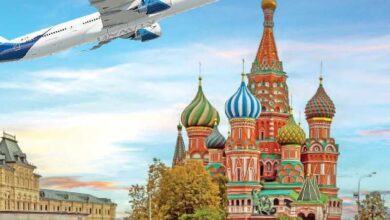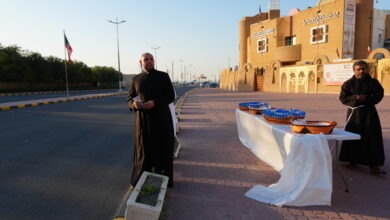
In 2025, the world marks the 80th anniversary of the victory in the Great Patriotic War (1941–1945), a pivotal chapter in the broader context of the Second World War. This historic occasion stands as a testament to the extraordinary courage, unity, and sacrifice exhibited by the people of the Soviet Union. For Tajikistan, which was a Soviet republic at the time, the war became a defining moment in its history—leaving a legacy of valor and resilience that is honored to this day.
The War’s Scope: A Shared Tragedy

The Great Patriotic War was the largest and most devastating conflict in history, claiming the lives of over 27 million Soviet citizens. The war affected almost every family within the USSR, causing unimaginable suffering. Yet, amid this hardship, the strength and solidarity of the diverse peoples of the Soviet Union were revealed.
Though geographically distant from the front lines, Tajikistan played a crucial role in the battle against fascism, contributing significantly to the Soviet war effort.
Military Contribution: Tajik Soldiers in Action
Approximately 305,000 individuals from the Tajik SSR were mobilized during the war—a significant number considering the republic’s population at the time was just over 1.5 million. This widespread participation underscores the profound commitment of the Tajik people to the Soviet cause.
Tajik soldiers fought across nearly every major front and battle:
- On the Western Front, they defended Belarus and the Baltic states.
- On the Southern Front, they joined the battles in Ukraine, Crimea, and the Caucasus. Tajik units also played a vital role in relieving the Siege of Leningrad.
- In Operation Bagration (1944), they participated in the liberation of Belarus, one of the most successful Soviet offensives.
- In Berlin (1945), Tajik fighters stormed the Reichstag, marking the final defeat of Hitler’s regime.
- More than 92,000 Tajik soldiers never returned from the front, with over 54,000 reported missing or captured.
Heroes from Tajikistan
Several Tajik individuals were celebrated for their exceptional bravery, earning them the highest honors:
- Sirojiddin Isroilov, from Gissar, was awarded the title Hero of the Soviet Union for his remarkable courage.
- Tursun Uljabayev, later Chairman of the Council of Ministers of the Tajik SSR, served at the front and became a symbol of leadership.
- Mirzo Tursunzoda, though not a frontline soldier, contributed significantly through literature, uplifting soldiers and civilians alike with his patriotic writings.
- Sattor Tursunov, one of the few Tajik pilots, flew numerous combat missions during the war.
In total, 56 Tajik soldiers were awarded the Hero of the Soviet Union title, with hundreds receiving other prestigious honors, such as the Order of Glory and the Order of the Patriotic War.
Tajikistan’s Home Front: Behind the Lines
- Tajikistan’s contributions to the war extended beyond the front lines, as the republic became a key logistical and humanitarian hub:
- Agricultural Production: Tajikistan was vital in maintaining cotton production for military supplies, with women and youth filling the gaps left by men at war. The republic earned the title of the “Cotton Front” for its crucial role.
- Industrial Output: Factories from the western USSR were relocated to Tajik cities like Dushanbe and Khujand, where local workers were trained to produce essential wartime goods, from textiles to machinery.
- Support for Refugees: The republic provided refuge to tens of thousands of evacuees, including orphanages, artistic groups, and scientific institutions, offering homes, food, and support.
- Role of Women and Youth: Tajik women stepped into essential roles in factories, farms, and hospitals, while youth organizations mobilized to support the war effort by gathering food, caring for soldiers, and maintaining morale.
- Cultural Contributions: Intellectuals and artists, including writers like Bobojon Gafurov and Abulqosim Lahuti, helped galvanize the nation’s spirit through literature and public performances.
Post-War Tajikistan: Rebuilding and Remembering
After the war, Tajikistan focused on rebuilding and honoring its war heroes. The republic established Victory monuments, including Victory Park in Dushanbe, which houses an eternal flame and a war museum. Memorials in every major city list the names of fallen soldiers, ensuring the sacrifices made are never forgotten.
Victory Day (May 9) is annually celebrated with parades, ceremonies, and tributes to war veterans, underscoring the lasting impact of the Great Patriotic War on the nation’s collective memory.
Tajik Veterans in 2025: Living Legends
As of 2025, fewer than 120 veterans of the Great Patriotic War remain in Tajikistan, most now in their 90s or older. The government continues to provide healthcare, financial support, and public recognition to these national heroes, whose experiences serve as living links to the past.
Their stories are preserved through interviews, documentaries, and publications to ensure the memory of their sacrifice lives on for future generations.
Enduring Legacy: Lessons for Future Generations
Tajikistan’s involvement in the Great Patriotic War has deeply influenced its modern identity. The unity and courage displayed during the war are reflected in the country’s values today:
- A profound respect for veterans and elders
- A commitment to peace and diplomacy
- A strong sense of patriotic duty among the youth
As an independent nation, Tajikistan proudly honors its wartime legacy, emphasizing the importance of peace, unity, and historical remembrance. The 80th anniversary serves as both a reflection on the past and a reminder of the strength that comes from solidarity.
For Tajikistan, the Great Patriotic War was not just a conflict—it was a formative experience that continues to shape the republic’s path forward. From the battlefields to the cotton fields, Tajikistan’s contributions are woven into the fabric of victory. Their heroism, both at the front and on the home front, will forever be etched in the heart of the nation.
We remember. We are proud. We honor. Eternal glory to the heroes.












